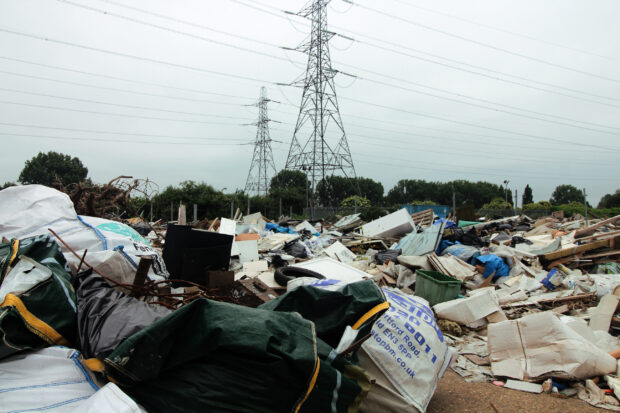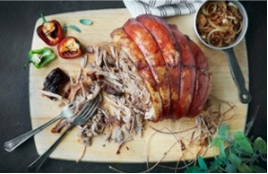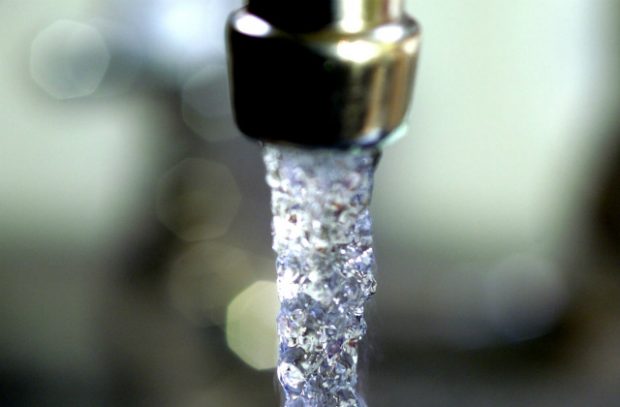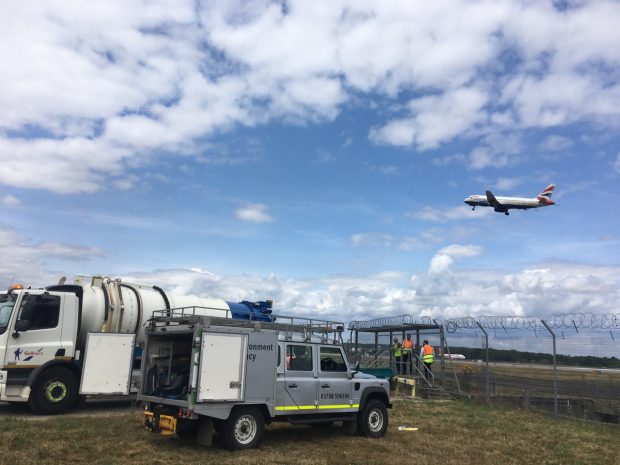Don’t Risk It this summer

There is coverage this morning on the national Don’t Risk It campaign in The Daily Telegraph. The piece begins by saying ‘Don’t bring plants home from holiday’ reiterating Defra’s biosecurity messages.
The piece warns readers that a seemingly innocent pot of lavender brought back from an Italian market could lead to another Dutch elm disease-type scenario here.
The article also reports a YouGov survey for the Royal Horticultural Society found that nine per cent of holidaymakers would consider bringing plants, seeds, bulbs, tubers or cuttings from abroad.
Protecting our country from pests and diseases is vital to safeguard our environment, economy and health and the Government as invested more than £4.5 million to strengthen our border security, recruiting new plant inspectors and enhancing training.
However, the public need to be aware of the risks and it is crucial that we all practice safe biosecurity measures; when travelling, don’t bring back plants, seeds, vegetables or flowers as these could harbour disease that could devastate UK landscapes and wildlife.
Government response to the NAO report on packaging waste

There is extensive coverage this morning of a report by the National Audit Office (NAO) into packaging recycling in the UK.
BBC covered the report on Breakfast and Radio 4 Today, and the majority of national newspapers also picked up the story, including the Times, Telegraph, Mail and Guardian.
A number of the reports claim our current method for calculating recycling rates could be vulnerable to fraud and error, and waste which is exported for recycling could instead be burned or sent to landfill. The Environment Agency is also criticised for the number of inspections it undertakes.
We have already committed to overhauling the current system and will set out our ambitious plans in the upcoming Resources and Waste Strategy.
A Defra spokesperson said:
"Since the current packaging producer responsibility regime was introduced, recycling rates have increased significantly.
"However, there is much more to do. We don’t recycle enough waste, and we export too much of it.
"That’s why we have already committed to overhaul the system, and we will set out our reforms in the Resources and Waste Strategy later this year."
Our packaging waste regulations have resulted in a significant increase in recycling over the last 10 years – recycling of packaging has risen from around 46% in 2005 to over 70% in 2016.
Our statistics are based on independent research (http://www.wrap.org.uk/content/plastic-packaging-market-study-plastic-flow-2014-0) undertaken by waste industry specialists Valpak and WRAP and our data is scrutinised by the European Commission as part of our annual submission. As part of our planned reform work on producer responsibility regimes, we will review the data on which we make policy decisions to ensure its ongoing accuracy.
An Environment Agency spokesperson said:
"We have a strong track record of using enforcement to bring businesses back into compliance. Since 2011, we have brought 258 businesses into compliance by using Civil Sanctions which has resulted in a combined financial payment of over £5M to environmental causes.
"Where we find any evidence of fraud or error in data reported to us, we remove that information from the overall packaging recycling data and calculations."
The Environment Agency adopts a risk based approach to compliance, seeking to target those businesses likely to have the biggest impacts. We recognise the need to improve our work on inspections and we are currently reviewing options to achieve this.
We undertake a wide range of compliance activities to ensure those we regulate are compliant. Site inspections are only one element of this. We also undertake desk based compliance checks as well as data and trend analysis.
Food safety control checks at the border after Brexit

The Food Research Collaboration group has today published a briefing, titled Feeding Britain: Food Security After Brexit, which suggests the government may suspend food safety controls in the event of no Brexit deal to prevent delays of food at UK borders.
The academics who have written the report go on to say that EU countries might then retaliate by blocking UK exports because of the “cavalier” approach to safety standards
The i newspaper features suggestions from the report on its front page today, and its content is also covered by the Guardian, Express and Mail.
The government has been clear that it will not suspend food safety controls or weaken its high standards, even in the event of no deal – a situation that it neither wants not expects.
A government spokesperson added:
"Our aim is to agree a deal with the EU that keeps trade as frictionless as possible and maintains the current system of checks and controls at the border.
"Food imports from third countries will be subject to the same robust checks as they are now and our high standards will be upheld."
EFRA report on the sale of fur
There has been widespread coverage over the weekend on fur in the Mail Online, BBC Online and the Telegraph Online following an Environment Food and Rural Affairs committee report which was launched following claims that real fur was being sold as fake fur by high-street retailers.
The report calls on government to launch a consultation to ban the sale and import of fur products and for a new labelling system post-Brexit so shoppers can know if they are purchasing an item made or decorated with real or synthetic fur.
A Government spokesperson said:
"The government shares the British public’s high regard for animal welfare, and fur farming was banned in the UK in 2000.
"Trade in fur from domestic cats, dogs or commercial seal hunts are also banned, but while the UK is a member of the EU it is not possible to introduce additional restrictions on the fur trade.
"Brexit gives us the opportunity to go further. Meanwhile, we will closely consider the committee’s report and respond in due course."
United Utilities shareholders set to receive £181m

The Mail on Sunday has reported on water company United Utilities’ plans to pay out £181 million dividends to its shareholders days before a hosepipe ban takes effect across North West England.
Coverage focusses on the reported failure of water companies to invest in infrastructure with the equivalent of a bath and a half per household, per day wasted through leaking pipes that United Utilities have failed to address.
As the heatwave continues, people have been urged to take shorter showers to help conserve water.
A Defra spokesperson said:
"The Environment Secretary could not be clearer, he expects the industry to focus less on financial engineering and more on improving engineering in our infrastructure.
"That requires the water industry to increase investment to deliver a more resilient network, dealing more promptly with leaks and being better prepared for more extreme weather.
"We need a water industry that works for everyone and ensures the best possible value for money for bill payers."
The story also features in The Daily Mirror, The Guardian and The Sun.
Environment Agency dry weather incident response

There has been ongoing coverage of the current dry weather including a focus on the Environment Agency’s front line response. The Daily Telegraph ran a story on the Environment Agency conducting 26 fish rescues since the start of June as a result of the heatwave raising water temperatures across the UK. The fish rescues included one in the River Mole which was the focus of an Environment Agency press release.
The story quotes Anna Burns, Environment Manager at the Environment Agency, saying: “Our officers have worked around the clock to prevent widescale fish deaths at this much-loved river. It is distressing that a large number of fish had perished ahead of our efforts, but our swift emergency response has ensured that many more will now be saved.”
Feeding pigs leftovers
Saturday's Times reported a group of scientists say food waste could be safely fed to pigs providing it is heat-treated first.
The article explains researchers from the universities of Cambridge, Leeds and Wageningen in the Netherlands reviewed evidence from around the world and concluded strict controls would allow the creation of a “flourishing waste-to-feed industry” and that "even pork scraps could be fed to pigs".
The practice of feeding swill to pigs was banned in the EU in 2001 after it was identified to be at the heart of the Food & Mouth outbreak that affected UK farming in the same year.
Pigs eating infectious meat or meat products is also a key way African Swine Fever (ASF) is currently spreading in Central and Eastern Europe - a disease we are working to keep out of the UK with good biosecurity on farms and people not bringing back meat from areas affected by ASF.
Good progress has been made to tackle food waste in the supply chain and we are aware of the latest research into feeding food waste to pigs - the Animal and Plant Health Agency (APHA) has met with the Resource Efficient Food and dRink for the Entire Supply cHain (REFRESH), an EU food waste programme who convened an expert panel to look at risks.
However, the robust controls needed throughout the production chain, and strict processing conditions required to mitigate the risks of disease, mean that any system for treating catering waste for feed is unlikely to become commercially viable.
The issue of feeding food waste to pigs was also covered on BBC 1's Countryfile last night (listen from 11:50mins).